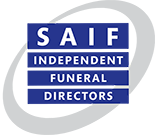At Jack Warwick Funeral Service we believe it is important to think about and plan for what you want to happen leading up to and following your death. Getting organised and planning for the future can save your loved ones a lot of worry and stress and from experience many of clients tell us that it gives them peace of mind too. Here we have listed some important things you may wish to think about that can help you and your loved ones leading up to and following your death.
Setting up a power of attorney
At Jack Warwick Funeral Service we believe it is important to discuss and plan for what you want to happen to you should your health deteriorate leading up to your death. We know that this is a difficult and emotive topic but it can save your loved ones a lot of worry, and make things less stressful for you too. Setting up a lasting power of attorney (LPA) is a way of giving someone you trust the legal authority to make decisions on your behalf should your health deteriorate. A power of attorney can be really helpful should you have difficulties in making decisions or understanding the consequences of decisions you make. You can set up a power of attorney for financial decisions as well as for making health, care and personal welfare decisions. Setting up a power of attorney can be particularly helpful if you are diagnosed with a condition such as dementia, that way if you are no longer able to make decisions, some one you trust can make decisions for you.
For more information about setting up a power of attorney go to www.gov.uk/power-of-attorney.
Making a Will
At Jack Warwick Funeral Service we believe it is important to discuss and plan for what you want to happen following your death. By making a will you can make it clear what you want to happen to your money and possessions after you die and you can include any wishes for your funeral too. Writing a Will is essential to ensure that your assets and possessions are distributed according to your wishes after your passing. If you pass away without a Will (intestate), the law dictates how your estate will be distributed under what is known as the Intestacy Rules. If you’re married your partner will inherit the first £322,000 along with all your personal possessions and anything above that will be split in half; one-half to be given to your spouse and one-half given to your children in equal shares. If you’re not married it will follow your bloodline, passing to your children, grandchildren, parents or siblings. If you die intestate and have no family to inherit, your estate will be passed to the Crown.
The key times to write a Will are when you reach significant milestones, or your wealth accumulates. Getting married, having children, and buying property are all key times when you should write a Will or update your Will if you already have one. It’s recommended to review your Will periodically, especially after significant life events such as marriage, divorce, birth of children or acquisition of new assets. Updating your Will ensures that it remains current and accurately reflects your wishes. A Will should outline how you want your assets, property and possessions to be distributed after your death. It should also designate guardianship for any children under the age of 18 and specify any other final wishes, such as funeral arrangements.
Typically a Will costs in the region of £300 – £400 to set up. However, there are a number of free will schemes run across the year that enable people to get their Wills set up for free, these include The Free Wills Network and Free Wills Month. Free Wills Month run during March and October brings together a group of well-respected charities to offer members of the public aged 55 and over the opportunity to have their simple Wills written or updated free of charge by using solicitors in selected locations across the UK. If you use Free Wills Month, you are under no obligation to leave a donation, but most charities taking part hope you will and whatever you do leave will remain confidential. More information can be found at the Free Wills Month website.
Registering your Will with The National Will Register is not a legal requirement, but it is highly recommended, as it ensures that your Will can be easily located by your loved ones when needed and provides an extra layer of security. You can register your Will directly with The National Will Register on their website or through your solicitor when your Will is finalised. Anyone can search the National Wills Register to see if a Will has been registered and its location however, the contents of the Will cannot be accessed or viewed on the National Will Register. Once you pass away, your executors are the only people who can access and view your Will as these are the individuals who are listed to execute your wishes. Following the grant of probate, your Will becomes public access and will be available for anyone to read on the Probate Registry, which is separate to the National Wills Register.
For more information on setting up your Will visit citizensadvice.org.uk/family/death-and-wills/wills/.
Planning your digital legacy
At Jack Warwick Funeral Service we believe it is important to organise your online life and digital estate for after you die as most people don’t even consider their digital assets and most Wills don’t cover this. Whilst a document detailing your digital wishes isn’t legally binding like a traditional Will, it can detail your online financial, social media and digital photos with financial or sentimental value to you and your loved ones. Sunlife have created an easy-to-follow digital legacy guide to record your digital wishes and take control of your digital legacy – the digital information you leave behind online after your death.
It is recommended you start by writing a list that includes your online accounts (email accounts, subscription services, blogs, store, credit and currency cards) include basic details, including the name of the account, website, and your username or account ID. You could include a list of your digital accounts and what you would like done with these i.e. pass on, preserve or delete in a “letter of wishes” to be stored alongside your will. You can create a free MyWishes account and make use of the downloadable “social media will” to document what you want to happen. Holding a digital copy as a backup, and you can include a reference to its physical location. Alongside the copy of your will, you can keep a digital letter of wishes, which can be updated easily online when needed.
You may wish to nominate the Executors for your Will as your Digital Executors (ideally someone who is relatively tech-savvy), who will be responsible for closing or managing your accounts, along with sharing or deleting digital assets such as photos and videos. Some social media platforms allow you to add a legacy contact who can manage your account when you die. You may want it simply deleted, or “memorialised”, which means the word “remembering” will be placed next to your name. The Digital Legacy Association website has a lot of information that can help: digitallegacyassociation.org/resources-2/.
Getting organised before you die
At Jack Warwick Funeral Service we believe it is important to organise your affairs for after you die as this can make it easier for your loved ones following your passing. One way you can do this is by creating a folder of important information and documentation which will be needed after your passing and letting people close to you know where you have stored your information.
In addition to keeping your documents in one place, it’s also handy to keep a sheet of personal information which may be needed when contacting departments or companies such as:
- Full name
- Birth certificate
- National Insurance number
- Bank accounts
- Certificate of marriage or civil partnership
- GP details
- Solicitor’s Contact Info
- Employer payroll number
- Utility Bills or Company Contact Info
Having access to your legal documents is extremely important for your executors. It’s usual to keep copies and store the originals securely with a solicitor. One of the most important documents for your family to have is your life insurance policy so that any claims can be processed as quickly and smoothly as possible. It can also be helpful to have details for any other insurance policies you have like, home, car and medical, as this will make it easier for them to be amended or cancelled. A surviving spouse will need information about pensions, as well as marriage licenses as they can be required to prove entitlement – divorce settlements can be equally useful. Documents which prove ownership for properties, cars, stocks and shares, and even Premium Bonds are also very important. Families might not always know about everything owned by an individual, and if they are unaware of your passing the assets go unclaimed. Last but not least, make sure you include your funeral wishes and plan details including contact details for your chosen funeral director. Having these items easily accessible in your folder will help your family contact your funeral director so they can begin the arrangements for your chosen funeral.
It is worthwhile checking through your information folder once every year or so to update or add to it. As time goes on, certain elements of your life will change and having all of your information up-to-date can make all the difference when it comes to settling your affairs after you pass away.
The process of gathering all of the information which your family and friends need may take you some time but this act could save them upset during a difficult time when you are gone.
Talking about your funeral wishes
At Jack Warwick Funeral Service we believe it is important to talk about your funeral wishes with your loved ones. With the rise of non traditional funerals and specifically direct cremations, it is has never been more important to discuss your funeral wishes with your loved ones. At Jack Warwick Funeral Service we have seen an increase in requests for direct cremations where the deceased has thought they were relieving their loved ones of the burden of having to arrange a funeral, when in fact this has compounded their loved ones sense of loss without allowing them comfort and closure that a traditional funeral service can provide.
Thinking about your funeral arrangements can feel difficult – but giving it some thought can make things easier for everyone. Talking about what you would and wouldn’t like, finding out how much things might cost, and putting some plans in place can reassure you as well as your family and friends. It also makes sure that your funeral reflects your wishes.
You might want to think about whether you want a burial or cremation, where you would like your funeral to be held, whether you would like a religious or non religious/humanist service, you might have special requests such as a woodland burial or a coffin made from wicker or cardboard, what clothes you want to wear and what you’d like your guests to wear, whether you would like flowers at your funeral or charitable donations made instead, you may know what songs, hymns or readings you’d like too. Whatever your funeral wishes it’s important to let your loved ones know too.
At Jack Warwick Funeral Service we are happy to guide you and will keep your funeral wishes on file irrespective of whether you wish to set up a funeral plan or not.
Setting up a funeral plan
At Jack Warwick Funeral Service we believe it is important to discuss and plan for what you want to happen following your death. A funeral plan is an easy way to arrange the funeral you want in advance and allows you to specify your wishes and pay for the funeral service in advance which can bring peace of mind to you and your family. We work in partnership with Golden Charter to provide you with a simple way to plan ahead. We recognise everyone has different needs when it comes to funeral planning and we are happy to discuss your individual funeral requirements and tailor a plan to suit you regardless of age or health. We can discuss your funeral plans at our premises or in your home, at a time that is convenient for you. You can tell us about the type of funeral you would like to have, hymns, music or any other personal touches and we’ll make sure your funeral plan takes these into account. Our funeral director’s services will be covered in your funeral plan, which means our fees will be fixed at today’s prices. Although there are some additional essential non-funeral director service costs required to carry out a cremation or burial which need to be paid for at the time of the funeral. You can pay for your plan in several ways. At Jack Warwick’s we will hold full details of your funeral plan and when the time comes, one phone call is all it takes to activate your plan and get your funeral arrangements as you wished underway.
Letting your loved ones know
At Jack Warwick Funeral Service we believe it can be really helpful to ask for your loved ones input into your plans, especially if you want them to carry out your wishes when you have passed. So once you have put everything in place, we would suggest you talk it through with the people closest to you and let them know where your documents are kept.
For more information on any of the topics mentioned please contact us on 01536 485635 and 01933 824824.



